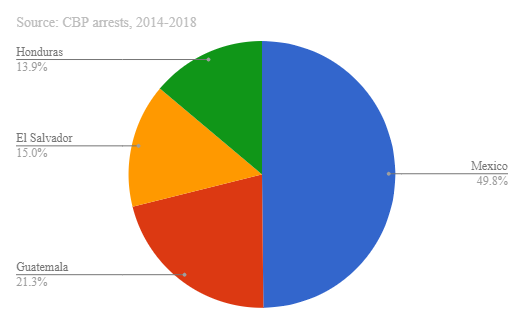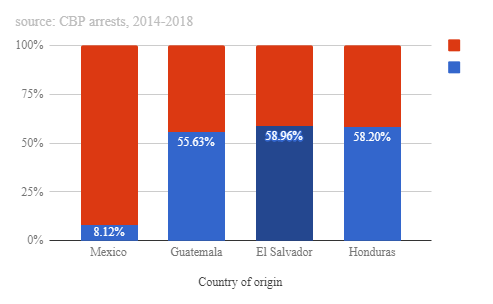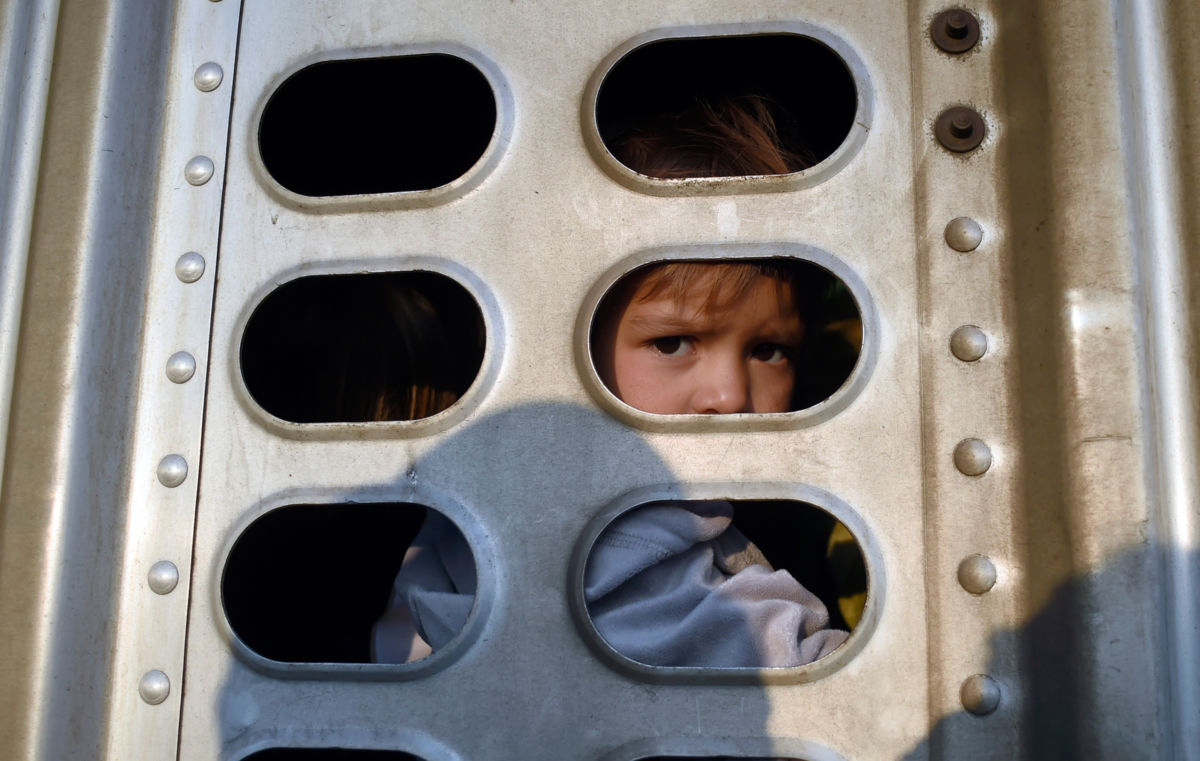Truthout is an indispensable resource for activists, movement leaders and workers everywhere. Please make this work possible with a quick donation.
In recent weeks, many on the left and right of the US political spectrum have been riveted by the spectacle of thousands of families from Central America trekking across Mexico with the migrant caravans. On the right, President Trump has used these images to gin up racism and fear, curtailing migrants’ opportunities to seek asylum. On the left, activists and academics have attempted to counter his lies by insisting that it is legal to seek asylum under US and international law. These assertions, while correct, worry me: I fear we are throwing Central Americans under a bus driven by our own limited imagination.
In part, it’s easy to ignore Central American realities because historically, their numbers have been relatively small compared to Mexicans apprehended at the US border. But since 2014, the Border Patrol has apprehended almost as many Central Americans as Mexicans, a startling figure when you take into account that the entire combined population of the Northern Triangle countries — Guatemala, Honduras and El Salvador — is roughly a quarter of Mexico’s.

And not only Central Americans’ per capita numbers, but their characteristics, are distinct from Mexicans. Between 2014 and 2018, a majority of migrants arrested at the border from each of the three Northern Triangle countries were unaccompanied minors or parents travelling with minor children. (The figure for Mexican arrestees was 8.1 percent).

This matters. There is something distinctive about migration from the Northern Triangle, and those of us concerned about human rights should take note. While most of our understandings of what fuels migration – and what kinds of policies might stanch it – are rooted in the push/pull factors discerned from demographic data, social scientists know relatively little about decisions to migrate under conditions of widespread violence as endemic as that plaguing Northern Triangle countries. A recently published study by Jonathan Hiskey and colleagues concluded that particularly for Hondurans and Salvadorans, migration was deeply connected to the experience of criminal victimization. In other words, these aren’t just people desirous of a better life; they are people who have directly experienced violence and not found safe haven in their homelands.
Central America has plenty of problems of its own making, of course; these are some of the world’s most unequal countries. But historically, the United States government advocated “stability” in this region even when that was to be imposed by regimes we knew to be lawless. This happened during the armed conflicts of the 1980s in Guatemala and El Salvador, when the fear of communism led the US government to support genocidal dictatorships, and hundreds of thousands died. More recently, it happened in Honduras’s 2009 coup, when the US eagerness to see “order” restored led Hillary Clinton’s State Department to endorse a government of armed thuggery.
For those forced to flee the consequences of these dreadful decisions, amnesty has never been a realistic possibility. During the wars, scorched-earth campaigns drove thousands across borders, babies in arms; but the overwhelming majority were not granted asylum, because the US was funding the armies that were firing on them. Many stayed anyway, though they lacked access to higher education or legal employment. Our failure to offer asylum left them to eke out an underground status in Los Angeles and other cities; some joined street gangs to get by. The mass deportations of the 1990s transplanted those gangs into the fertile soil provided by the lawless governments the US had supported, and the MS-13 gang and its rivals took root.
Today, the US government is faced with a new wave of asylum petitions filed by Central Americans fleeing those gangs, babies in arms. But our record of taking them seriously is still dismal. All three Northern Triangle countries rank in the top five countries from which our country receives asylum requests; unfortunately, they’re near the bottom in terms of how often asylum is granted. Over the past five years, almost 80 percent of asylum requests from this region were denied. And that number is certain to get much worse, thanks to Jeff Sessions’s 2018 order that domestic violence and gang violence be excluded as grounds for asylum.
In this context, it is irresponsible to purport to resist Trump by “holding the line” on asylum, because asylum has already failed these people to whom we owe a deep debt. It is not enough to insist they have a legal right to pursue an avenue that for all practical purposes is already closed to them. Yes, asylum helps many people; yes, it should be preserved and expanded. But as someone who has spent her professional career advocating for human rights in this long-suffering bastion of failed US policies, I can no longer stomach supporting a system that unjustly and disproportionately turns Central Americans away, just because it benefits others.
So, what’s left for those of us who care about Central Americans?
First, we need to advocate real immigration reform, not just incremental reduction in cruelty to some people. Yes, that means #AbolishICE.
Second, we need to support those who are already here, but not just by pouring money into legal representation for asylum claims when these avenues are effectively closed for so many; we need funds to support the families of those detained or deported, friends to escort the vulnerable to ICE check-ins, and a rising clamor of voices saying that we don’t want to go back to the Obama era, but forward to a new era rooted in real respect for human rights.
A terrifying moment. We appeal for your support.
In the last weeks, we have witnessed an authoritarian assault on communities in Minnesota and across the nation.
The need for truthful, grassroots reporting is urgent at this cataclysmic historical moment. Yet, Trump-aligned billionaires and other allies have taken over many legacy media outlets — the culmination of a decades-long campaign to place control of the narrative into the hands of the political right.
We refuse to let Trump’s blatant propaganda machine go unchecked. Untethered to corporate ownership or advertisers, Truthout remains fearless in our reporting and our determination to use journalism as a tool for justice.
But we need your help just to fund our basic expenses. Over 80 percent of Truthout’s funding comes from small individual donations from our community of readers, and over a third of our total budget is supported by recurring monthly donors.
Truthout has launched a fundraiser to add 310 new monthly donors in the next 4 days. Whether you can make a small monthly donation or a larger one-time gift, Truthout only works with your support.
